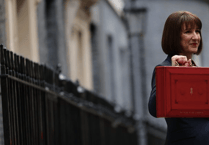I preached a sermon recently in which I referred to a group of men known as ‘the Sons of Issachar’. I’m well aware that this is a pretty obscure reference, but I hope this won’t put you off reading any further because they have something important to teach us even though they lived thousands of years ago.
The Old Testament tells us that the Sons of Issachar ‘understood the times and knew what Israel should do’. That’s a fascinating observation because it tells us they weren’t just aware of the facts, they knew how to react appropriately. In other words, the Sons of Issachar possessed more than knowledge they were renowned for their wisdom and discernment. It seems to me that we need people like that in every generation.
We are living at a time when we are awash with information. The advent of the internet and search engines such as Google have transformed our lives in ways that we little imagined possible. All we need is a laptop or a smart phone and we have the world at our fingertips.
Take one simple example. For some bizarre reason I found myself wondering what is the greatest officially recorded number of children born to one mother. It took me less than five seconds to discover that a Russian peasant who lived in the 18th century is said to have given birth to 16 pairs of twins, seven sets of triplets and four sets of quadruplets! If I’m correct that’s sixty-nine little mouths to feed and a lot of sleepless nights!
Now I must admit I found that statistic hard to believe at first but, given the fact that I found it in the Guinness Book of Records with some documentary evidence to support it, I came to the conclusion that, as unlikely as it sounds, there are good reasons for believing it. But I came to that conclusion after checking it out and I would suggest that we need to constantly do that, particularly in this age of social media. We’d be pretty foolish, not to say gullible, if we failed to check out what we have read or been told. It’s the same when it comes to assumptions. It is all too easy to assume something is true without having the evidence to support it.
Given all this then you will understand why I was delighted to read that ‘Voice for Justice UK’ has announced that it is launching a Commission of Inquiry into Discrimination Against Christians. This, they say, will be ‘tasked with investigating the existence, nature, context and scale of any discrimination faced by Christians in the UK today.
Those who feel they have experienced disadvantage, intolerance, hostility, bigotry, social ostracisation, or even ridicule, are being invited to give evidence, via Zoom, before a Panel of Commissioners, who will hear and assess their testimony without bias, prejudice, or pre-judgment. The hearings will be open, on application, to the public, and at the end of the inquiry, which is expected to last two years, a report of the commission’s findings will be submitted to Parliament, along with recommendations for action’.
It will be good to know what is really happening ‘on the ground’. Christians above all should be eager for the facts to be known even if they do contradict their assumptions, and for one very good reason: they need to know the truth if they want to take the right course of action. And so, I’d like to thank ‘Voice for Justice UK’ for doing us all a service. I look forward to their findings whatever implications they may have for my current assumptions because I do detect something of an antipathy towards those who promote traditional Christian truths and values. I could be wrong of course, but I don’t think I am.




